The world of service dogs is growing rapidly with dogs who are now trained to work beside their owners with wide varieties of disabilities. But how do you know if you qualify? With so much information out there, even false information, it can be difficult to know how it all works. Here are the few very important things you need to be aware of when applying for a service dog… Or deciding to train your own!
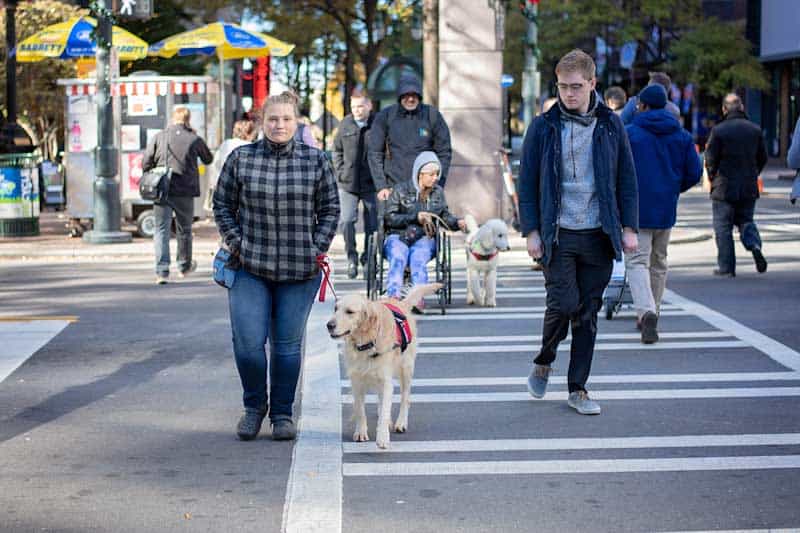
1. Service Dogs are for persons with disabilities.
This one might sound obvious but we get a lot of inquiries from individuals without disabilities wishing to simply have a cool dog they can take anywhere. Service dogs are technically medical “equipment” trained to take specific actions to mitigate someone’s disability. Simply because a dog is trained to do something does not make it a service dog. It must also have a legitimate reason for accomplishing these tasks. This reason is to help alleviate the difficulties brought on by a disability.
2. The Service Dog must be trained tasks for the disability.
If you do have a disability and are looking into adding a service dog to your life, it must be trained to accomplish tasks to aid you with struggles you encounter due to your disability. An example of this would be a dog who is trained to alert its deaf owner to important sounds. There are many people who believe a dog is “providing a service” simply by the soothing presence it gives. However, even if you have panic attacks and the presence of a dog calms them, this is still not considered a service dog. A service dog must be trained to take a specific action that directly relates to the panic attack and successfully curbs them. If there are no effective tasks a dog could do to assist with the disability, one would not qualify for a service dog.
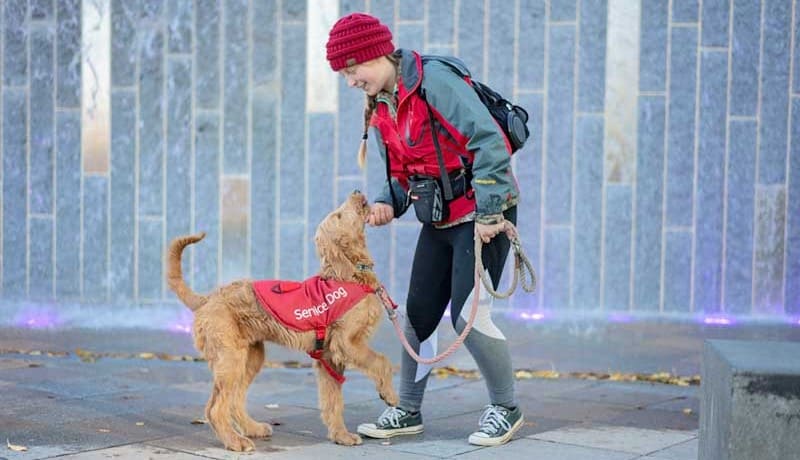
3. You must be willing to commit yourself to the Service Dog.
Some individuals may not qualify for a service dog due to their current lifestyle, responsibilities and obligations, or environment. Service dogs are a lot of work. So much so that they typically alter their owner’s schedule, lifestyle, and activities. Simply because you have a disability does not mean a service dog may automatically be a good option for you. Daily maintenance training, continued socialization, and extra time spent on the dog’s care all contribute to quite a commitment made by the owner in order to keep their service dog healthy, active, well-mannered, and ready to successfully perform its tasks at any given moment. If you are considering a service dog, anticipate the amount of work and effort that must continually go into these dogs and measure whether this option may be a good fit for your lifestyle or not.
4. Consider the well-being and safety of the Service Dog.
It is extremely important to keep the dog’s safety and well-being in mind as some disabilities cause outbursts of violence or aggression. Unfortunately, due to the service dog working so closely with the person, they can get caught in a dangerous situation. We have known service dogs who have been injured due to a meltdown caused by autism, an episode caused by PTSD, and so on. Service dogs can be taught tasks that help calm individuals who often experience these difficulties however it is crucial to understand that not everyone is calmed by a service dog, regardless of how well the dog performs its tasks. Therefore, one must first consider the safety of the dog before continuing the process of acquiring a service dog.
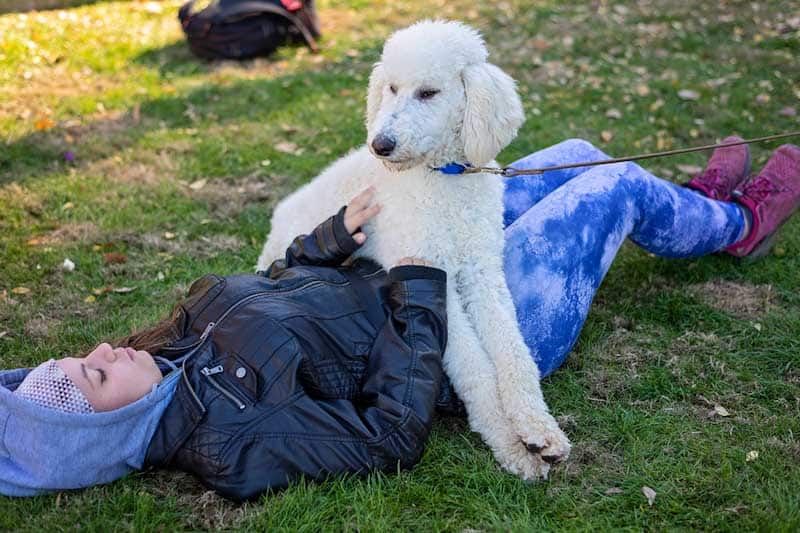
If you are still unsure if you qualify for a service dog or if a service dog is right for you, please contact us! Our knowledgeable service dog specialists have a wealth of experience raising and matching service dogs to individuals in need. Fill out our free Preliminary Application today and our team will review your situation and offer guidance on your next steps in the process.
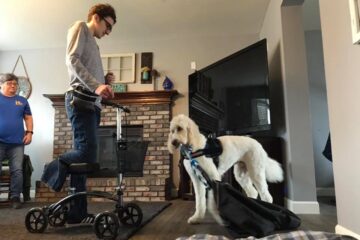
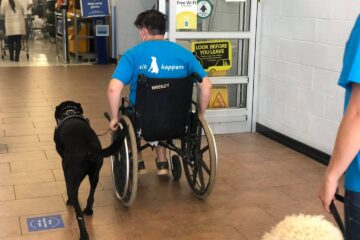
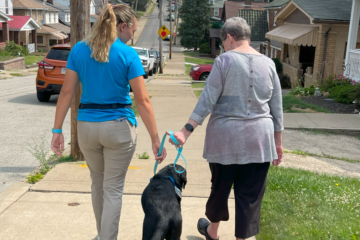
0 Comments